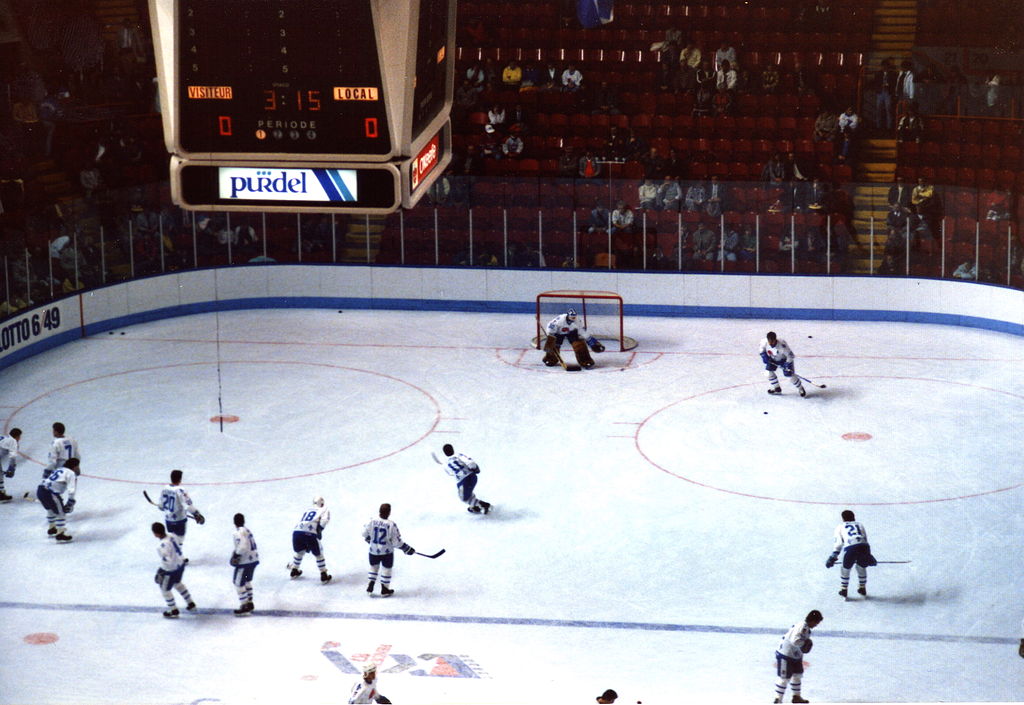Identities on the ice

Warm-up period before a match of the Nordiques de Québec at the Colisée de Québec, 1986
Anna Johnson - When you introduce yourself to someone new, how long does it take for you to mention which sports team you’re a fan of? For some people, sports are totally separate from their identity. But for others, connection to a particular sports team is a key pillar of who they are - creating a sense of attachment to a particular place. When that sports team disappears, however, that sense of identity doesn’t just disappear with it. In the case of the Nordiques hockey team in Quebec, politicians are using this sense of French-speaking identity within Quebec to garner support for their policies.
Connection to a sports team helps build up a sense of national identity - people’s connection to the nation they are a part of, which in this case may be a region of a country. Within Canada, the people of Quebec have a unique sense of national identity tied to their language. As a linguistic French-speaking minority in a primarily English-speaking country, Quebeckers often see themselves as separate from the majority of Canadians. The former Quebec Hockey team the Nordiques was a key part of building up Quebec’s identity through the 1980s. They sang the Canadian national anthem in French and wore the fleur-de-lis of Quebec’s flag on their jersey. When the team left in the 1990s due to money problems, Quebecers lost a pillar of that identity. Now, nearly 30 years later, Quebec’s Premier François Legault is drawing on that lost sense of identity to bolster support for him and his party, the Quebec Future Coalition. As part of his campaign for the NHL to bring a team back to Quebec, Lagault announced that it had agreed to pay the Los Angeles Kings between 5 and 7 million Canadian dollars to play two games in the city during their preseason. The move has largely backfired. Lagualt’s approval rating has fallen since the announcement, making him, according to one poll, Canada’s most unpopular provincial leader.
While their identity has deep ties to their language, the French-Canadians in Quebec must balance their Quebec identity with their Canadian identity. In the time the Nordiques played in Quebec, the province tried and failed twice to secede from the rest of Canada. Ever since the Nordiques left, the Montreal-based Canadiens have been trying to convert the team’s fans to support them. But this shift in support represents more than merely a new hockey team to follow. By supporting the Canadiens, Quebecers would be embracing a much more Canadian, multilingual identity rather than their traditional French-speaking one. Despite the campaign, a historic rivalry between the Nordiques and the Canadiens holds many fans back from switching their support and, in effect, embracing the competing identity.
Photo Credit: Claude Brochu, CC BY-SA 3.0, via Wikimedia Commons

